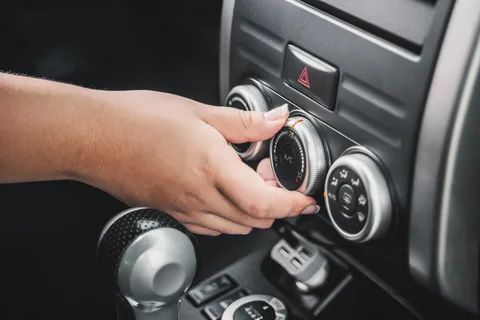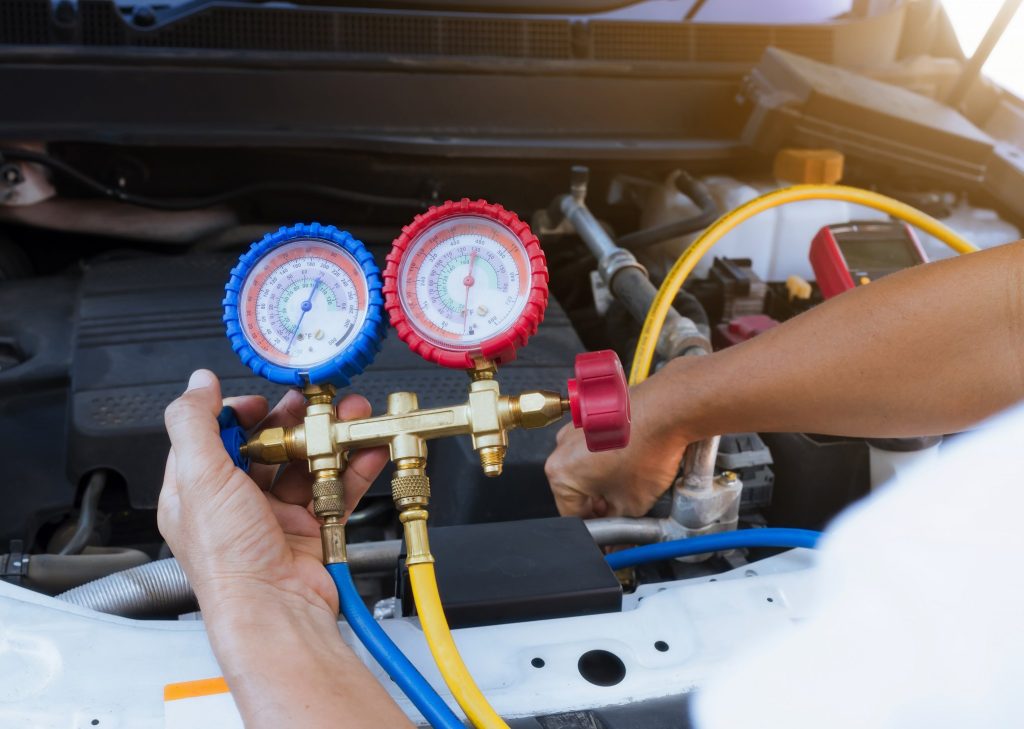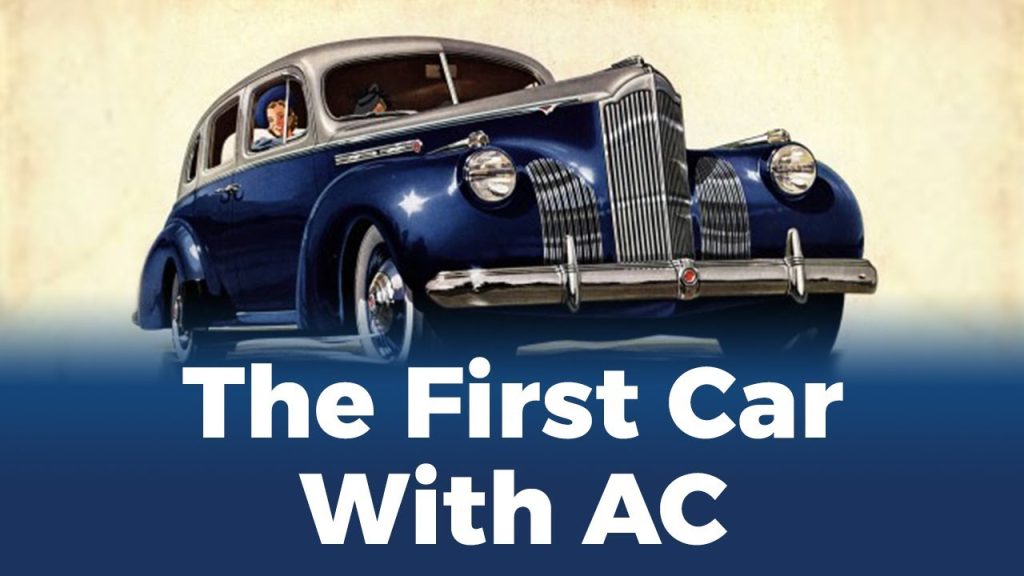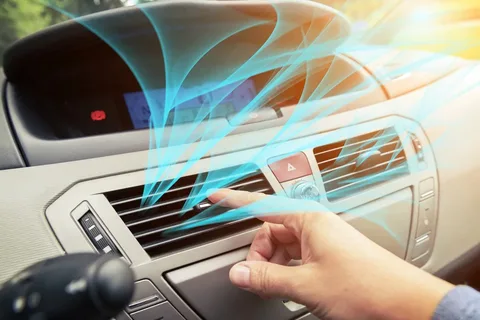How Does Car Air Conditioning Use Gas?
Table of contents
Using car air conditioning can be a great way to save fuel. In fact, the EPA recommends using it at highway speeds, stating that it is more energy efficient than leaving the windows open.
However, it is important to understand how car air conditioning uses gas. In fact, the more often you stop and go, the more fuel you will use. This is because the car’s engine is running. The engine drives the alternator, which drives the car’s air conditioning system.

When you roll down the windows, your engine has to work harder to maintain a constant speed. This can significantly affect your fuel economy.In addition to the cost of fuel, rolling down the windows also adds aerodynamic drag.
This drag increases the amount of resistance in the air, which makes the engine work harder to maintain a constant speed.
If you are worried about your fuel economy, you may want to consider using the air conditioning less often. According to a study conducted by the Society of Automotive Engineers, leaving the windows open can cause fuel efficiency to drop by 20 percent.
Another study found that driving at speeds higher than 55 miles per hour has a negative effect on fuel efficiency. When you’re driving faster than this, it can create even more resistance in the air, which makes the engine more difficult to maintain.
While some people may be able to afford to use car air conditioning more often, others may not. Depending on your driving habits, you may want to limit your use of the air conditioning.
Youtube Video About Car Air Conditioning
How Does It Work?
Having an understanding of how car air conditioning works can help you troubleshoot problems and identify the cause. Car air conditioning is a common feature in most cars. It provides a cool environment for passengers and protects them from harmful air pollution. However, not all air conditioning systems are created equal.
The car air conditioning system works by cycling refrigerant. The refrigerant is a gas that gets converted to a liquid. As it is heated, the refrigerant absorbs heat from the air.
The heat is then dissipated by the condenser. The condenser is a small device that looks like a radiator.

The evaporator is another heat exchanger in the car air conditioning system. The evaporator consists of fins that absorb heat from the air. The vaporized refrigerant then flows back to the compressor in a suction hose.In the past, the car air conditioning system was cooled by using ice.
Today, cars use R-134a refrigerant. The newer cars have individually adjustable zones. Some climate control systems have a second filter to prevent air pollutants from entering the system.
There are a few common problems with air conditioning systems. In addition to repairing the system, you may need to replace the refrigerant.
The refrigerant used in today’s vehicles has different chemical properties. The refrigerant also has different environmental impacts.
Car air conditioning systems are also under pressure from the refrigerant. When you shut off the engine, the compressor will not run. Some climate control systems can also switch internal recirculation off when air pollutants are detected.
When Did Cars Get Air Conditioning?
Almost every automobile on the road today is equipped with some form of air conditioning. Originally, air conditioning was not a standard feature in automobiles. The first automobile air conditioner was invented by Lowell Goldberg. This technology did not take off because of the high cost of the unit. It also had a number of mechanical issues.
After World War II, the air conditioning system began to become popular. Manufacturers were competing to build a system that was more efficient and quiet.
Some manufacturers began offering rear-mounted air conditioning systems. Others began installing aftermarket systems.

During the 1930s, automakers began to experiment with various types of cooling systems. Some used mechanical cooling, which included the use of a fan and cooling ducts.
Others tried a system that could only recirculate air in the cabin. Some of these systems were unreliable and required regular servicing.By 1940, Packard introduced the first factory-installed air conditioning system. The $274 USD option was not very popular, however.
Aside from being expensive, the system had several limitations. It did not feature an independent shut-off feature, and required the driver to remove the belt from the compressor.
A few years later, Packard discontinued its air conditioning option. Other manufacturers followed suit. Cadillac and Chrysler introduced factory-installed systems in 1941 and 1942, respectively. These were expensive and had mechanical problems.
After World War II, automakers began to build and install more efficient systems. The Chrysler Airtemp system reduced dust, pollen and tobacco smoke. It was also the first system to use evaporation to cool air.
You can review the operating logic of the car air conditioner here.
Final Thought
In conclusion, using the air conditioner in your car while traveling at a fast speed will help you save fuel. It’s crucial to comprehend the system’s operation and potential effects on fuel efficiency.
Refrigerant circulates in the car’s air conditioner, absorbing heat from the atmosphere and releasing it through the condenser. While most cars currently come with air conditioning as standard equipment, this wasn’t always the case and early systems had many drawbacks.
Although air conditioning systems have improved in efficiency and effectiveness due to technological advancements, they still need routine maintenance and sporadic repairs.
Drivers who have a basic understanding of auto air conditioning can see and fix any problems with their system.
You May Also Like
- Check your car is ready for winter? Click more.
- More greats? Click here for more “How To” category.
FAQ
By making the engine work harder to operate the alternator, which powers the car’s air conditioning system, automotive air conditioning indirectly uses up fuel. The amount of fuel required by the engine to run the air conditioning system increases with how frequently you stop and start.
Air conditioning indirectly uses fuel by working the engine harder. Yet, open windows increase aerodynamic drag and fuel consumption. The EPA advises air conditioning over windows at highway speeds because it saves fuel.
The brand and type of the car, the effectiveness of the air conditioning system, and the outside temperature are just a few of the variables that affect how much gas is needed for an hour of air conditioning. The typical fuel consumption of air conditioning is between 0.2 and 0.4 liters per hour.
Absolutely, because it lessens the load on the engine, turning off the car’s air conditioning can help you save on gas. Driving with the windows down, meanwhile, can also result in more aerodynamic drag and less fuel economy. It’s advisable to employ a variety of tactics, such as minimizing air conditioning use and keeping windows closed while driving quickly.
Air conditioning wastes petrol depending on the car’s make and model, air conditioning performance, and outside temperature. The EPA suggests using air conditioning at highway speeds because it can be more fuel-efficient than driving with the windows open. Air conditioning makes driving more comfortable, which improves safety and focus.





